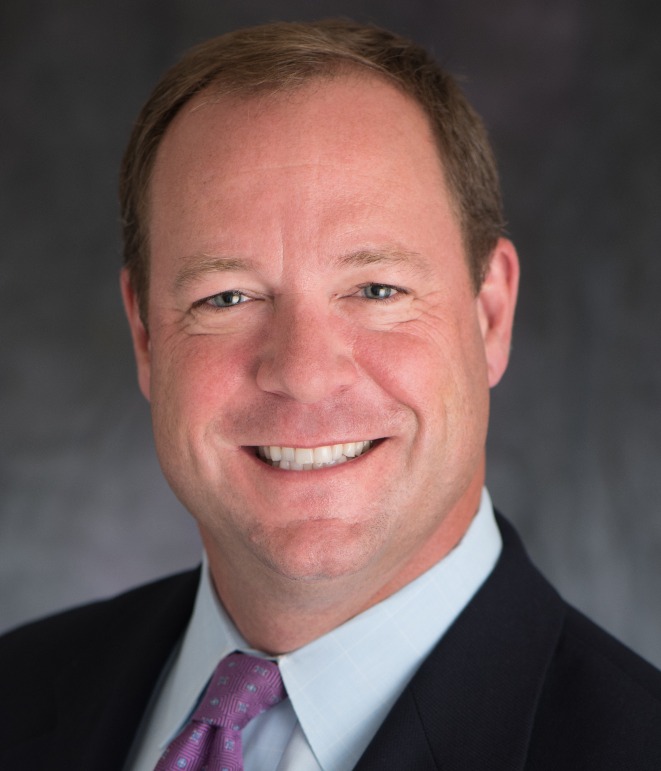
The Driverless Future is Coming. Will a Safety Net Follow?
With the rise of driverless cars like Waymo, Assistant Professor Georgios Petropoulos analyzes how legislation could provide a safety net for workers impacted by the growing market.
Arkley Advisory Council Spotlight: Benjamin McKay
Arkley Advisory Council Spotlight: Benjamin McKay
The CEO of the Surplus Line Association (SLA) discusses his career journey, new industry trends and AI, and advice for risk management students.

Benjamin McKay, CEO of SLA and Arkley Advisory Council member.
[Photo courtesy of Arkley]
Benjamin McKay, Arkley Advisory Council member, has enjoyed an accomplished career in both the public and private sectors. From chief of staff for a United States congressman to one of the top lobbyists in Washington, D.C., McKay’s professional journey has spanned several industries. Since 2012, he has served as the CEO and executive director of the Surplus Line Association of California (SLA), the world’s largest surplus line association.
McKay joined the Peter Arkley Institute for Risk Management for a discussion on the surplus lines industry, his expansive career, and his advice for students.
Interviewer: How were you first introduced to the risk management and insurance industry?
Benjamin McKay: When I was a young staffer working in the Florida Legislature, the second elected official I worked for was a member of the House of Representatives insurance committee. Florida has a lot of major insurance risks, particularly in the natural catastrophe realm, and risk management is a very important topic among the state’s leaders and decision makers. I later worked for another Florida state legislator and a member of Congress who both served on the committees that dealt with insurance issues.
During my time working in Congress, the federal government became involved in insurance regulation to a much larger degree than ever before, establishing the Federal Insurance Office (FIO) and passing key legislation such as the Dodd-Frank Act (DFA) and the reauthorization of the Terrorism Risk Insurance Act (TRIA) and the National Flood Insurance Program (NFIP).
You have had a fascinating career, working in the U.S. Congress, the Florida Legislature, and the Florida Department of State and as one of the top lobbyists in Washington working for the Property Casualty Insurers Association of America, prior to joining the SLA. What has contributed most significantly to your professional success?
BM: I think my embrace of lifelong learning has been key — constantly trying to improve my knowledge in areas relevant to my job and my career. It has also been vital to have had a number of great mentors, who remain friends to this day. One of those mentors gave me the best advice I ever received as a lobbyist, which was to know every aspect of the issues I was lobbying. Additionally, I serve on a number of boards of various types of organizations, including the Gulf of Mexico States Accord, First Capital Finance, and the Insurance Industry Charitable Foundation (IICF), to name a few.
I also think that tenacity has been a big part of my success. I have always found that whatever you lack, you can usually make up for it through persistence and perseverance. And finally, I have had tremendous luck. Sometimes, just being in the right place at the right time can make all the difference — but only if you are opportunistic and know how to seize your opportunities. As the famous film producer Samuel Goldwyn said: “The harder I work, the luckier I get.”
You have now served at the SLA for a dozen years and have overseen tremendous growth in the surplus lines industry. What has been the most significant industry change you have seen while at the SLA?
BM: For me, the industry’s exponential growth from 6% of the commercial insurance market in California to 20% has been the most significant change. Going from 6% to 20% fundamentally changed the industry from a niche market to a cornerstone. Much of this growth has been achieved through a significant amount of mergers and acquisitions. The industry has seen the creation of several global surplus lines brokerages, such as Ace, Aon, Ryan Specialty, and Amwins, just to name a few of the leading firms.
What do you think is the most significant challenge facing the surplus lines industry today?
BM: The growth we are seeing on the personal lines side presents a very notable challenge for the industry. In particular, I am talking about the massive increase in the amount of homeowners policies that have gone into the California surplus lines market as admitted carriers have pulled back in recent years. While it is important for surplus lines to fill coverage gaps, this specific type of business comes under a much more intense focus from regulators and legislators than the commercial business that represents the overwhelming share of our premiums and transactions.
How do you think artificial intelligence (AI) will change the client relationship-centric model of the insurance industry?
BM: I expect that we are likely to see far-reaching changes in the next decade that we might not even be able to imagine at this point. The amount of resources being devoted to AI right now is on a military-spending scale, and the computing power going into it is almost unfathomable. It is likely that significant portions of underwriting will either be done by AI or heavily informed by AI.
However, in more discretionary areas where underwriting must be tailored to the individual insured, I expect a role for human interaction and decision-making will always exist.
As noted in the Arkley Institute Quarterly Update issued last winter, the SLA has contributed a generous scholarship for USC risk management students who want to build a career in the risk management and insurance industry. What are some qualities and characteristics you believe are important for these students to develop?
BM: A number of characteristics and qualities are vital for these young people to succeed in this industry. Several of them fall under the umbrella of basic workplace skills: conscientiousness, a good work ethic, the ability to work as part of a team, and basic professionalism. As Woody Allen put it, “90% of life is just showing up.” If you “show up” every day, if you have the right attitude, if you put in the time and effort, and if you work well with your peers, that is going to give you a solid foundation.
But beyond the basics, I think knowing your job, your company, and your industry well is vital — know how it works, know the terminology, put yourself in a position to have discussions and meaningful interactions with people in your space. I also think it’s extremely important to have problem-solving skills — being a thinker rather than just a “doer” adds value in a way that goes far beyond just coming in every day, working your 9-to-5, and hitting your metrics. As I tell people, we are not a widget factory. We are a thinking organization.
And finally, above all else, be curious. Ask questions and be eager to learn. The problem-solvers, the thinkers, the curious people — those are the ones who are going to rise.
What is a fun fact about yourself?
BM: In 1988, I was two matches away from making the U.S. Olympic taekwondo team. I reached the Olympic trials in Miami after winning the state taekwondo championships in New Jersey and Alabama.
RELATED
The Driverless Future is Coming. Will a Safety Net Follow?
With the rise of driverless cars like Waymo, Assistant Professor Georgios Petropoulos analyzes how legislation could provide a safety net for workers impacted by the growing market.
Why “Inefficient” AI Spending May Power Future Growth
New research finds companies investing heavily in new technologies despite low returns are often the ones driving tomorrow’s economic progress.
How to Talk with Your Hands
New research led by USC Marshall’s Luca Cascio Rizzo reveals that gestures that visually represent what speakers say help audiences perceive them as more competent and persuasive.
Forbes 30 Under 30 Entrepreneur Shares His Journey from Business School to Startup Success
Bobby Pinckney ’20 is creating impact with innovative technological ventures and inspiring new Trojans to shape the future.
Study Finds Power Shifts at Work Can Boost Employee Energy and Productivity
New research shows natural ups and downs of workplace influence can sharpen focus, fuel motivation, and support goal pursuit.